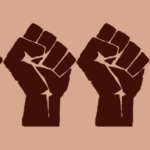I have, in my possession, what is quite possibly the last surviving copy of a long-forgotten literary magazine from 1933, a magazine that put out exactly one issue before folding. At 25 cents a copy, The Penguin was conceived by a group of impoverished young San Francisco writers as a West Coast answer to The New Yorker: The cover features an illustration lampooning FDR’S National Recovery Administration, and advertises “fiction, sports, satire, drama, fashions, and people.” The paper is crumbling and yellow, the glue of the spine long ago food for bugs. I’m afraid to even touch the thing, lest it disintegrate entirely.
On page nine (across from an ad for a transatlantic luxury liner) is The Penguin’s masthead. There are eight names listed under the editorial staff, and one of them is my grandfather’s: Jeffrey Weinberger.
The grandfather I knew growing up was not an outwardly literary man, though he was an avid reader (politics, biographies and thrillers, mostly). He was, instead, a businessman, who for 40-odd years owned a successful import-export firm that shipped cement to Central America, pomade to the Philippines, and guns to Zimbabwe. He lived to be 97 years old, and by any measure lived a damn full life: Family, friends, career success, world travel.
And yet, of the meager 11 pages of memoir that he left behind when he died—scribbled in spiky handwriting on yellow binder paper during the last years of his life—fully two of them are devoted to the handful of years he spent as a journalist and aspiring literary magazine editor in Depression-era San Francisco; pages that are crammed with dropped names and laced with wistful pride. In comparison, my grandmother merited two sentences. His two daughters—my mother and aunt—aren’t mentioned at all.
His years as a writer comprised less than four percent of his life; but vastly more of his imagination. Sometimes the lost dreams we once had for ourselves—the near-misses, that-which-almost-was—loom larger in our memories than they deserve. We can’t release the people we once thought we might be, despite intervening years of blunt reality. As a writer myself, I was happy to aid in his delusion.
I don’t remember having much of a relationship with my grandfather when I was young: He was a classic patriarch, delighted to have his descendants around him but not quite sure how to interact directly with kids. (My grandmother was the one who invited me to dinner and called on birthdays.) It wasn’t until I graduated from UC Berkeley and got an editorial assistant job at Wired that my relationship with my grandfather shifted. Not long after I accepted the position, he pulled me aside during a visit—it was quite possibly the first time he’d ever taken individual interest in me, his second-oldest grandchild—and, with a conspiratorial smile on his face, offered a little autobiographical nugget that changed my opinion of him forever: “I used to be a writer for magazines, too.”
A magazine writer? I’d had no clue. Suddenly, I saw my grandfather in a whole different light—not just a penny-pinching, business-minded curmudgeon who refused to pay for long-distance phone calls and grumbled about the news, but a journalist (like me!) who once sought truth. Someone who palled around with literary stars and aspired to a byline in The New Yorker. Someone as infatuated with words as I was. How had I not known this about him?
In the years that followed (especially after my grandmother’s death), my grandfather and I began to nurture a more intimate relationship: I’d visit him at his retirement home for lunch, or a game of dominos, and prod him for whatever details he could dredge out of the sea of his fading memories. I learned that after dropping out of UC Berkeley in 1930 (his family was too broke for tuition), he’d found a job at the San Francisco News, a Scripps Howard daily evening paper, working as a city staff reporter; and then as a “leg man” at the San Francisco Examiner, primarily on the police beat, until the Depression caught up with him in 1933 and he was laid off. (When he died, I inherited his press badge, an official-looking lump of metal straight out of a noir-era film.)
As he recalled in the yellow, handwritten pages, “This was a fascinating life. I met all the big shots, all the little shots, and went along with the crowd to Izzy Gomez, Blue Fox, Black Cat, etc.” At age 22, when he first relayed this information to me, I had no clue what those references meant. It wasn’t until I started digging deeper that I realized that my grandfather was part of a legendary period in San Francisco’s literary scene.
His home base during those years was the Monkey Block—a huge apartment building in North Beach that was considered the bohemian center of San Francisco, home to artists, writers, and actors going back to Mark Twain and Ambrose Bierce. (Lawrence Ferlingetti would later dub it “the most famous literary and artistic structure in the West.”) He palled around there with a group that would someday be quite famous, including the novelist William Saroyan, the celebrated playwright/screenwriter Sam Taylor, Emmy-winning comedy writer Larry Rhine, and Jack London’s daughter, the socialist writer Joan London. The Depression had left them all with an excess of free time.
According to my grandfather, they spent these unemployed hours drinking grappa-laced ginger ale at notorious speakeasies like Izzy Gomez and the Black Cat; and all-nighters sitting on the floor by fireplaces in Monkey House flats, talking politics and literature. The short-lived Penguin was an outgrowth from those evenings—an attempt by this group of writers to give themselves writing jobs when no one else would. Their plans were lofty, if underfunded: As an essay in The Penguin recalls its own genesis: “Still the dulling depression, but from it springs a live, vibrant thing… an authentic expression of youth, and a recording of the life and thought of Western America.”
Unlike his friends, my grandfather’s writing career ultimately went nowhere. I honestly couldn’t tell you if this was because he lacked talent, or if it was a matter of circumstance; but not long after The Penguin failed, my grandfather got work as a shoe salesman and as far as I know, never wrote another word. Regardless, something about the idea of my grandfather drifting through this era, with his grand visions and fascinating friends, clung to me in my early years as a writer, like a forgotten family inheritance that I hoped to claim.
I spent my own post-college years as a journalist in San Francisco in the 1990s, a time in which the literary legacy of San Francisco seemed to be dying. Ferlingetti’s City Lights still sold books in North Beach, but you were more likely to find dotcom types milling around the area than writers or artists (who’d largely been pushed out by rising real estate prices). There was still no West Coast New Yorker. Instead, the best jobs available to aspiring writers like myself were at technology publications like Wired and online magazines like Salon.
I worked at both publications in my twenties, and loved my time at each; but I couldn’t help feeling that the San Francisco literary culture I truly coveted, the one my grandfather had briefly lived, was gone. No wonder I glamorized the stories that he told me; no wonder that I idealized the idea of him drinking grappa with William Saroyan while plotting a magazine. And yet, from my perspective today, I can see that I was doing the exact same things he was at my age, just in more modern permutations—launching an online publication instead of a print one; going to illegal break-in parties at warehouses instead of drinking at speakeasies; staying up late talking culture and politics with friends who (even if I didn’t know it then) would someday claim similar sorts of success as his.
His stories had history on their side, lending them the idealistic sheen that only comes from nostalgia; but mine, while more mundane, actually led to a career. No wonder he was so excited by my fledgling vocation as a writer: My life paralleled his own so closely, but I was somehow making it work where he hadn’t.
When my grandfather died, seven years ago, The Penguin was the only possession of his that I asked for; hoping that, in some way, reading it would open a wider window into his life back then. It didn’t, not really. It is an interesting document of the period, but it’s not exactly a fun read. The prose is stiff and anachronistic and peppered with curious slang, and the political essays that were probably provocative back in 1933 (including an essay by Elliot Roosevelt—son of FDR—entitled “I Dislike Politics,” and the cover feature bemoaning the fact that “there is no real youth movement in America”) are full of references that are difficult to grasp in 2017. I found myself mostly interested in the women’s section, which features a personal essay about being a “lady cub reporter” and a think-piece entitled “Home or Career? Has the Depression forced women back into the home?”
Only one essay really jumped out at me as offering insight into my grandfather’s life, an essay entitled “Write East, Young Man.” The essay warns overly ambitious young writers away from trying to write for the “literary type—Atlantic Monthly, Scribners, Harpers—and the slick paper magazines of popular appeal—Saturday Evening Post, Colliers, Liberty, Red Book, Hearst International and the like… The ‘slicks’ are not the ideal field for the young writer to seek expression—not at first.” Instead, the author suggests trying pulp magazines:
Take your typewriter and your thesaurus and a copy of Gang Guns or Frontier Romances or Love Tales and study it well. Then sit down to try to duplicate the story as to plot and construction. Eventually you will sell. Even if you don’t, you will at least be writing, and strange though it may seem, that is the only formula for learning to write.
It’s oddly timeless advice—substitute “websites” for pulp magazines and it would be the same advice I might offer to a writer starting out today (with perhaps less focus on straight-up copying). It’s the same advice I took myself, after I finally quit my stable job at Salon at age 29 in order to try my hand at fiction. I wrote for anyone who would take me, even if it meant writing about nail polish for dogs for women’s magazines, or interviewing D-list reality TV stars. Ghostwriting, copywriting, blurb writing—I did it all, in order to pay the bills while I worked on a novel, which is what I really wanted to do. At least I was writing. And the more I wrote, the more confident my writing became.
But my grandfather clearly didn’t absorb this piece of advice. And looking back now, it’s obvious that my grandfather wasn’t, at heart, ever a writer. The piece of me that for decades has been driven to write and keep writing—even when faced with failure, or rejection, or impoverishment—is not something that he ultimately shared; otherwise his literary career wouldn’t have ended with the demise of The Penguin. Perhaps it was more the romance of the lifestyle, or a simple love of reading, that initially drew him to that career, more than the act of putting words to paper. The proximity to “big shots” and “little shots,” the hope that he might someday be one of them.
“I always thought I’d write a book,” my grandfather once told me; but there was nothing in his papers when he died that suggested he ever even tried.
And yet I still wonder how much of my career I owe to my grandfather, to the frustrated writer genes inside him that were passed down to me, whether intentionally or not. It certainly wasn’t something that was discussed when I was a child; and yet I imagine it trickling through anyway, through the love of reading that was dominant in my family, through the encouragement that my family gave me when I told them I wanted to be an author when I grew up.
Not long before my grandfather died, I published my first novel, All We Ever Wanted Was Everything. I brought him a copy in his retirement home, and he was delighted as he held it in his hands and read the inscription. “My granddaughter, the published author,” he said proudly, his eyes watering; then went off to brag about me to his friends. After he died, I found the novel in his bookshelf, looking suspiciously unread. To the very end, he was still more in love with the idea of writing than in the writing itself.
In that, I can see, we were never the same.
__________________________________
Janelle Brown’s latest, Watch Me Disappear, is now available from Spiegel & Grau.

















